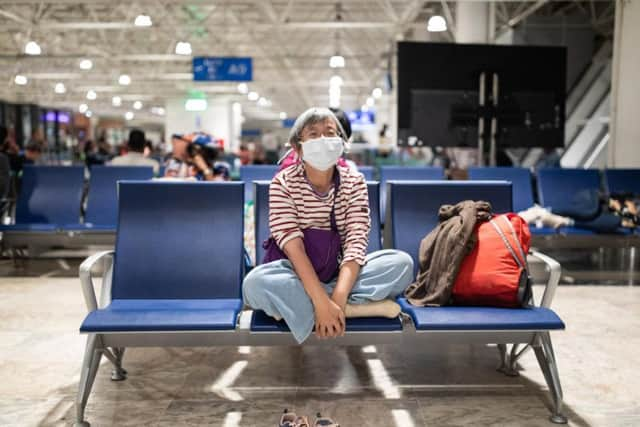Coronavirus fears: Expert urges a helpline be set up for those fearing infection
The decision by Public Health England (PHE) not to initially confirm the pair had been in York when they were taken to hospital was described by Professor Paul Hunter as "unfortunate".
The professor in medicine at the University of East Anglia, who used to work in the NHS and carried out contact tracing as part of that role, suggested a dedicated helpline should be set up for people who are worried about the spread of the virus.
Advertisement
Hide AdAdvertisement
Hide Ad

One of the two patients with coronavirus is a student at the University of York, and the other is a member of their family.
He told the PA news agency: "They should have given some more clear information about where it was, what dates they thought that contact might have happened, and given some more information about how they were going to identify contacts.
"I think some clearer information early on would have been very useful and would have been reassuring for a lot of people who have perhaps been in York."
Chief Medical Officer Professor Chris Whitty cited patient confidentiality concerns when asked on Friday for further details about the two patients.
He added: "I think it would have been a lot better if they'd just shared what information they could but didn't totally breach patient confidentiality.
"I think that would have been more reassuring for a lot of people."
While he said the "very large majority of people will actually have nothing to worry about", a crucial aspect is to reassure the so-called "worried well".
He added: "What do you do if you don't know whether you've potentially been a contact, so you're really worried for two weeks?
Advertisement
Hide AdAdvertisement
Hide Ad"There needs to be some way where people could either phone in or go to a website and say 'I was in York such-and-such a day, this is where I was, should I be worried?'
"And that is a very useful way of reassuring people that you're actually doing the right thing and that people are taking your concerns seriously."
Prof Hunter said students who had been in close contact with the patients - who are now being treated at a specialist unit in Newcastle - should not mix in large crowds for the next couple of weeks, ensure they practice good hygiene, and follow the PHE advice to call the NHS non-emergency 111 line if they are concerned they have developed symptoms.
He said the task for health staff in trying to trace people could be "especially difficult" if the infected people had travelled extensively on planes, trains or coaches, either when they were ill or immediately before.